
Shoulder Impingement Recovery
Shoulder impingement is one of the most common types of shoulder pain that we see in our clinics. Shoulder pain, specifically a shoulder impingement, typically occurs due to the complexity of the shoulder joint, which makes it susceptible to injury. Shoulder impingement recovery time is typically three to six months, depending on the severity of the injury and how the injury developed.
From a physical therapy perspective, a shoulder impingement injury typically develops from three main causes:
- Rotator cuff weakness causing the humerus bone to migrate up in the shoulder joint and cause a pinch of the rotator cuff muscles between the humerus and the acromion (the area that makes up the outer angle of the shoulder). This pinch in the rotator cuff muscles causes a decrease in blood flow to the muscles, causing swelling and pain in the area. (insert picture)
- Bone spurs or an abnormally shaped acromion bone that narrows the space where the rotator cuff muscles travel and can create a “pinch” or impingement.
- Poor posture, especially leaning forward with rounded shoulders can cause a narrowing of the space in the rotator cuff which can also lead to a pinching of the muscles.
Common Causes Of Shoulder Impingement Typically Include:
- Repetitive overhead activities, especially activities such as painting, weight lifting, and overhead sports such as baseball, swimming, tennis can cause injury.
- Age can be another cause of injury to the area. Those aged 50 years or older have a higher likelihood of developing shoulder impingement.
- Young athletes who participate in sports with repetitive shoulder motions are also susceptible to injury.
Symptoms Of Shoulder Impingement:
- Pain in the front or side of the shoulder that can radiate down the arm
- Pain at night especially sleeping on the involved side
- Pain with reaching behind your back, overhead, or out in front
- Swelling and tenderness in the front of the shoulder
- Catching or grinding in the shoulder when raising or lowering the arm
Treatment For Shoulder Impingement Injuries:
- Shoulder impingement recovery is almost always non-surgical and can typically be cured with physical therapy
- In some cases a cortisone injection can be helpful in reducing the painful inflammation of the rotator cuff and bursa
- Rest and avoiding overhead activities
Physical Therapy-Specific Treatments:
- Posture correction exercises coupled with patient education on correcting dysfunctional movement patterns
i.e shoulder shrug when needing to reach overhead - Setting shoulder blades in a down and back position
- Foam Roll Posture exercises
- Trigger point Dry needling to shoulder and pectoralis minor if needed
- Posture correction exercises such as T rows, Swiss Ball Rows and I’s
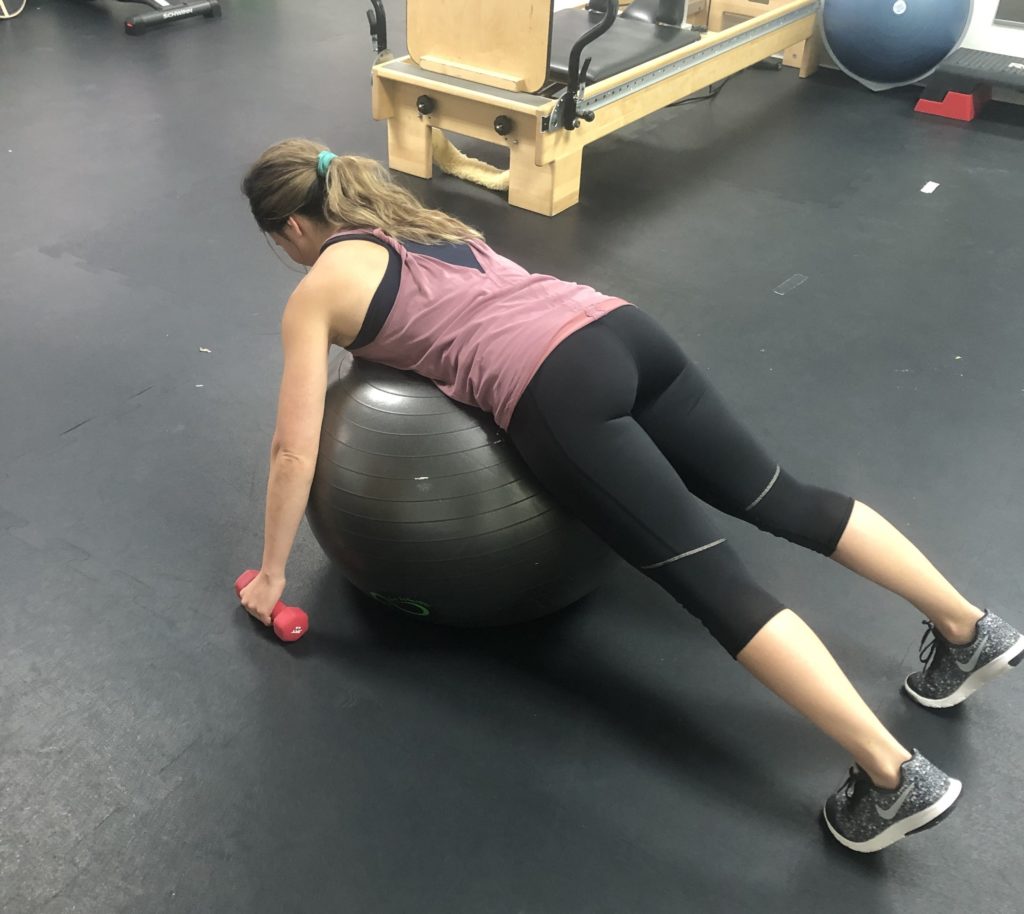 Neutral T Row
Neutral T Row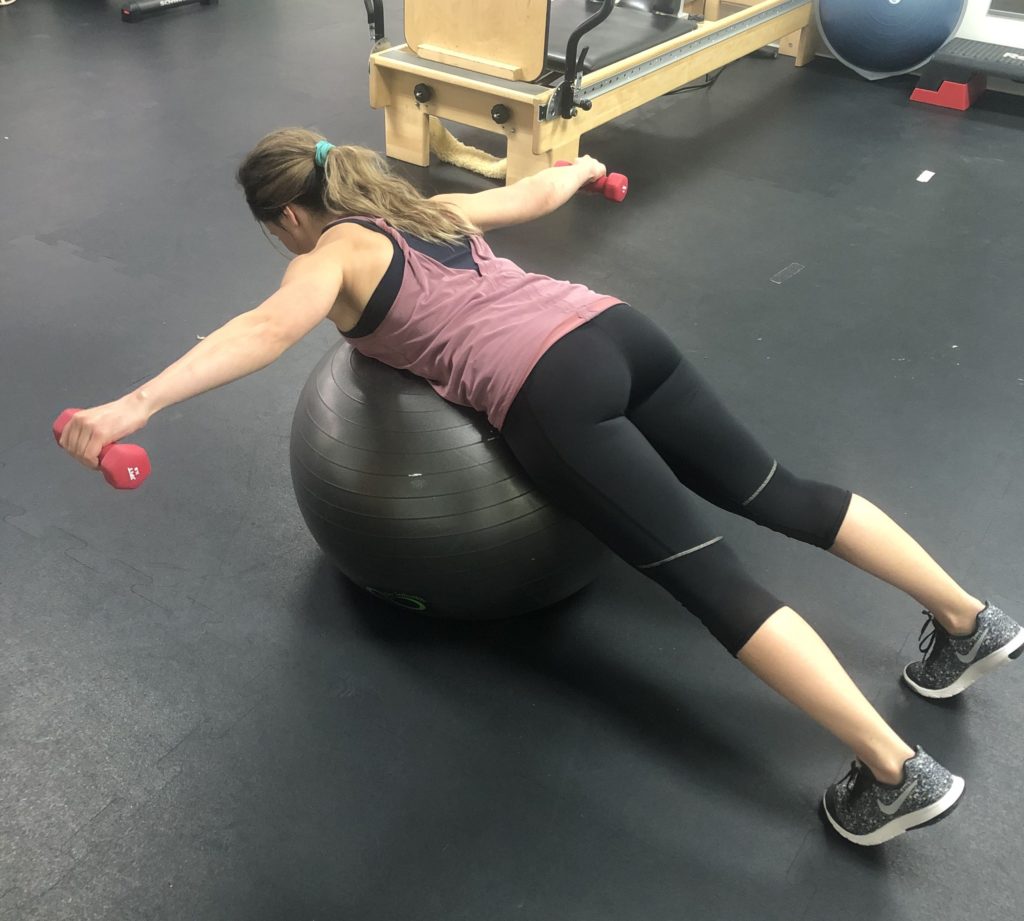 T Row
T Row - Rotator Cuff Strengthening Exercises Including: Scaption’s, External and Internal Rotation moves
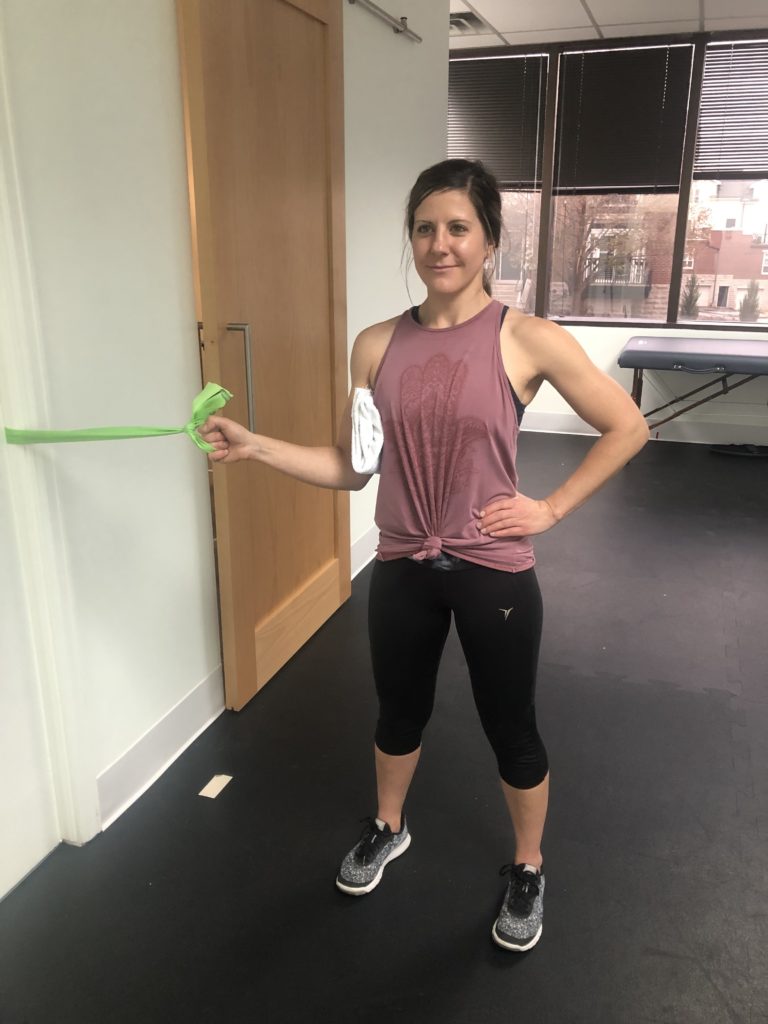 Internal Rotation Start
Internal Rotation Start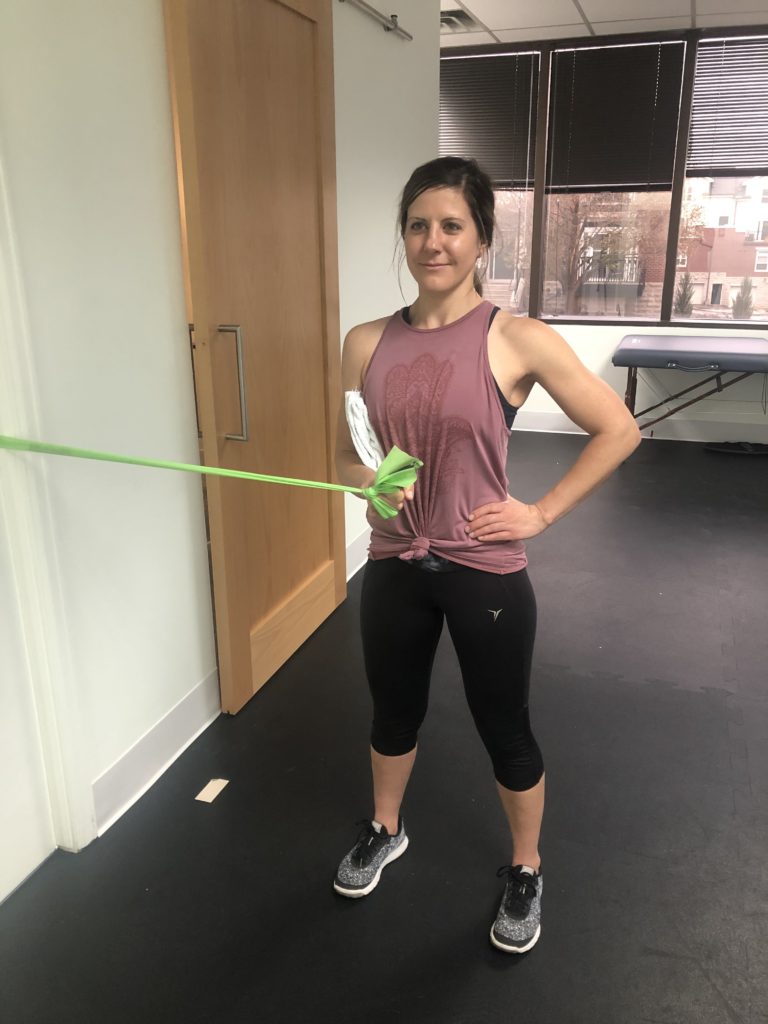 Internal Rotation Finish
Internal Rotation Finish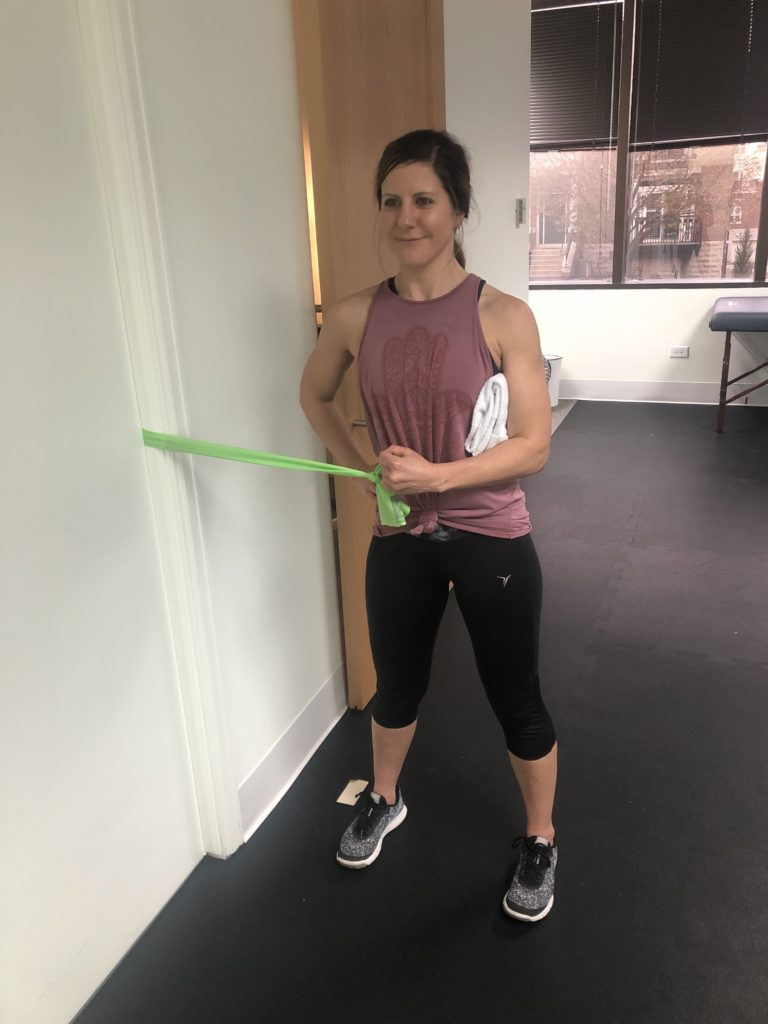 External Rotation Start
External Rotation Start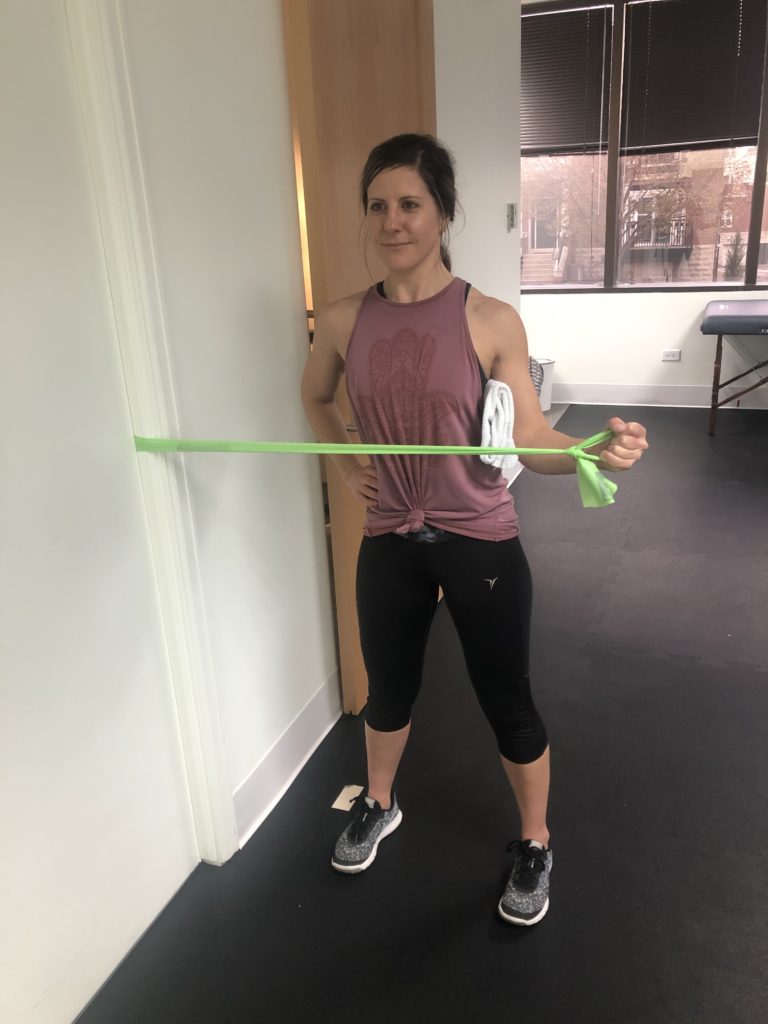 External Rotation Finish
External Rotation Finish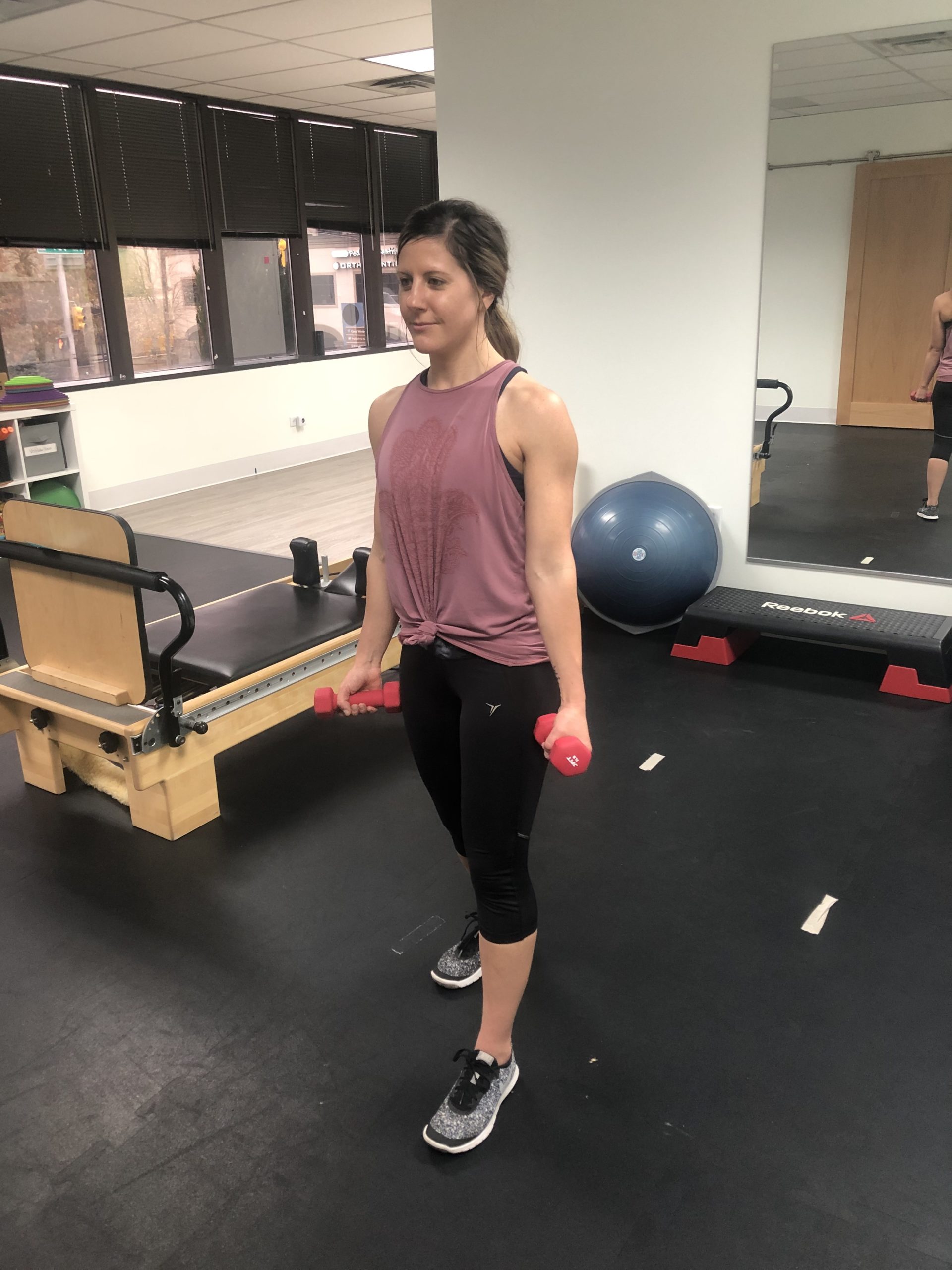 Scaption Start
Scaption Start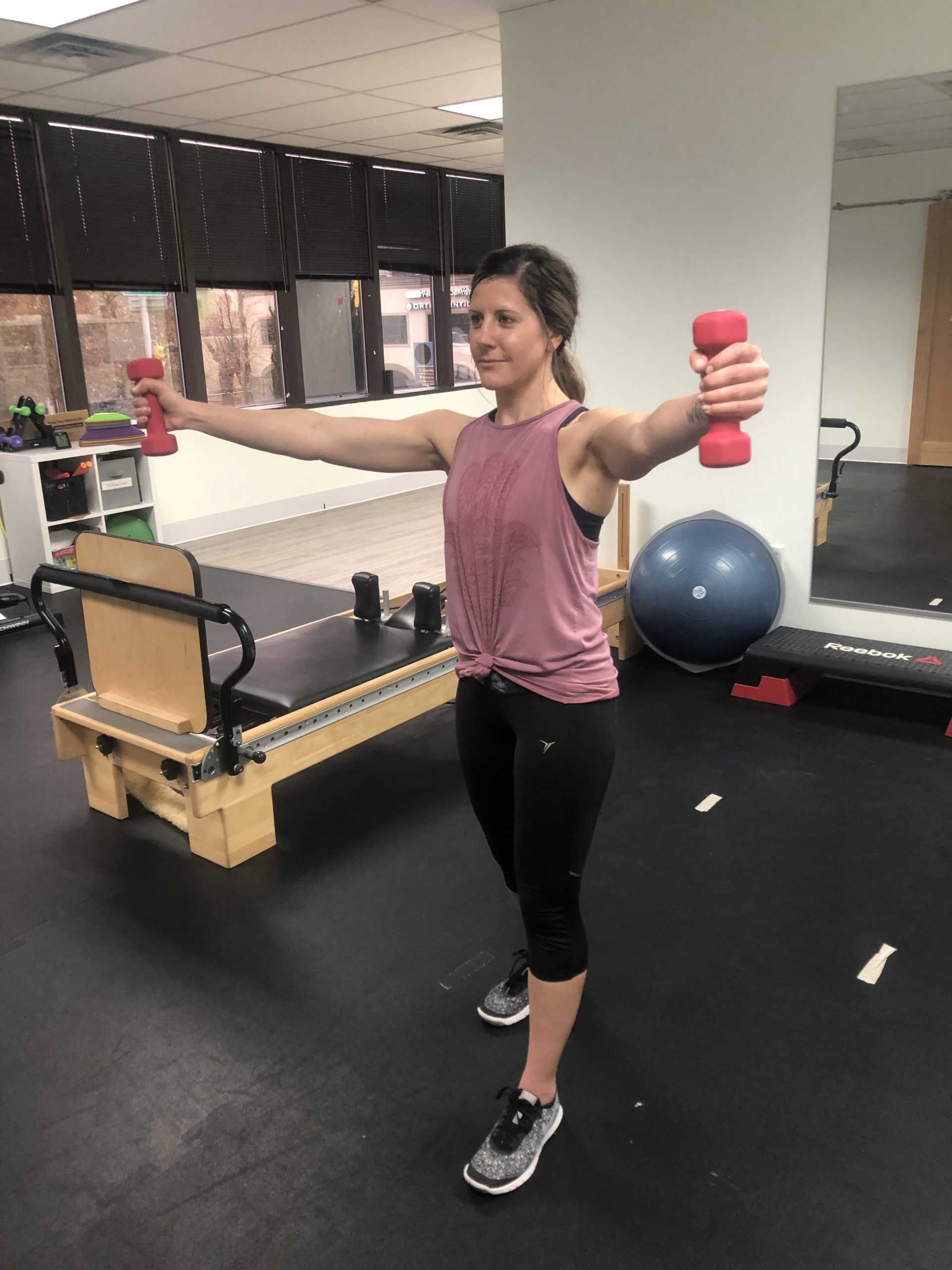 Scaption Finish
Scaption Finish
Your shoulder impingement recovery plan will depend on the extent of your injury, how it occurred and how soon you seek treatment. If you believe you are suffering from a shoulder injury, contact your nearest Therapydia physical therapy clinic.